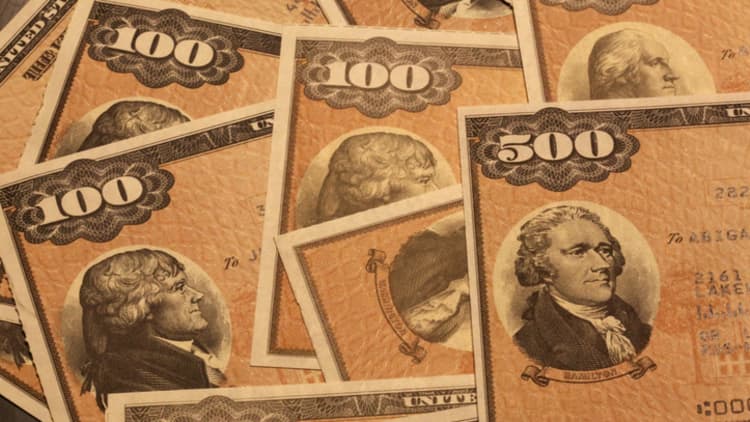Retirees, rejoice: Rising interest rates are providing a much-needed boost to money market fund yields.
Five years ago, yields on Vanguard's Prime Money Market Fund (VMRXX) were in the neighborhood of 0.06 percent. Today, the yield on this $12.7 billion fund is 1.84 percent.

Meanwhile, one-year certificates of deposit through online banks are touting rates as high as 2.25 percent.
Money market funds are mutual funds that invest in U.S. Treasury bills and commercial paper. They aim to maintain a net asset value of about $1 per share.
You can thank the Federal Reserve's recent move to increase interest rates: The Fed has increased overnight interest rates six times since 2015. Additional rate hikes this year are likely.
That also means conditions are just right for conservative investors who are hoping to squeeze some more yield out of their "safe money."
"They're becoming a lot more attractive now that yields exist in them," said James A. Cox, a financial advisor at Harris Financial Group in Chesterfield, Virginia.
"If rates continue to rise, money market funds will be a compelling story, where you can get close to 2 percent on cash," he said.
Overcoming trauma
Sept. 16, 2008, was a flashpoint in the financial crisis for many safety-conscious investors. That was the day that the Reserve Primary Fund "broke the buck," meaning its net asset value fell below $1 per share.
Retail investors who were already spooked by tumbling markets sought to bail from the fund and wound up getting back about 97 cents on the dollar.
Investors turned away from money market funds after the crisis, and low interest rates deterred them from pouring cash back into these supposed safe havens.
For instance, at the end of 2010, money market funds had an annual negative net flow of $359 billion, according to research firm Morningstar.
Net flows were back in positive territory at the end of 2017, at $110.3 billion.
New rules went into effect in 2016, permitting retail and government money market funds to maintain a stable $1 NAV, but requiring institutional funds to have "floating" NAVs like other mutual funds.
The new regulations also allowed fund managers to assess redemption fees or even temporarily suspend redemptions in order to prevent investors from yanking out cash en masse.
"The money market fund turmoil caused all kinds of havoc," said Cox. "It's not impossible for it to happen again, but the risk is significantly reduced."
Chasing yield
Amid low interest rates, investors have turned to short-term bond funds for yields that will beat money markets, but advisors warn against placing money you might need immediately in those investments.
"People buy Treasurys and short-term bonds for better returns but, as we've seen in the first quarter, those can go down," said Benjamin Brandt, founder of Capital City Wealth Management in Bismarck, North Dakota.
As a category, total returns on short-term bond funds were down 0.15 percent year to date through May 25, according to Morningstar.
"Money market funds are more like insurance than they are an investment," Brandt said. "You have ready access to cash that's worth a dollar a share, give or take a bit.
"Its job isn't the return," he added.
Now is a good time for investors, particularly those close to retirement, to take stock of what's in the fixed income portion of their portfolios. Avoid unreasonable risk with your "safe" money.
"Understand the purpose of what you own and why you own it," Brandt said.
More from Personal Finance
How the banking rule rollback will affect your mortgage, credit and more
Your neighborhood bank may now offer short-term, small dollar loans
10 states where you can buy the most house for $300,000


